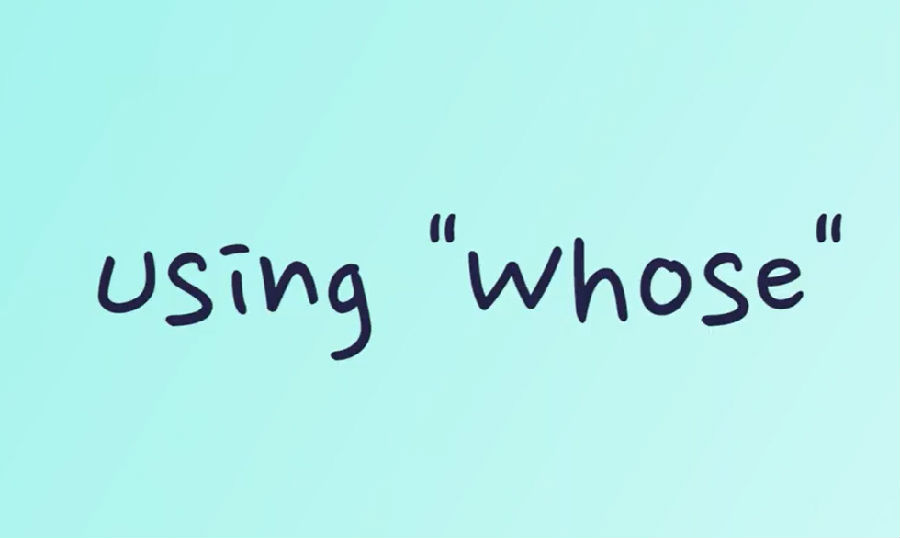(单词翻译:单击)
This is Everyday Grammar. I'm Kaveh.
这里是《每日语法》节目。我是卡韦赫。
And I'm Lucija. I wrote a poem and I need your opinion on it.
我是露茜佳。我写了一首诗,我想听听你的意见。
There is a woman whose husband is a football player.
有一个女人,她的丈夫是足球运动员。
There is a man whose wife is a teacher.
有一个男人,他的妻子是老师。
There is a woman who's a mayer.
有个女人是律师。
There is a man who's a preacher.
有个男人是传教士。
That's what I've got so far.
我目前就写了这么些。
Not bad. I like your play on "whose" and "who's".
还不错。我喜欢你对whose和who's的使用。
Thank you!
谢谢!
"Whose" is used to show possession, or who owns or has something, and acts as an adjective.
Whose用来表示占有的状态,或是某人拥有、持有某物,经常用作形容词。
It always comes before a noun, like "whose umbrella" or "whose house".
它的后面通常会跟一个名词,比如说“谁的雨伞”或者“谁的房子”。

There are three uses of "whose".
下面是whose的三种用法。
The first is in questions.
第一种是在问句当中。
A common structure is: whose plus noun plus the verb "to be" plus "this, that, or these".
常见的结构是:whose+名词+动词to be+this/that/these。
Whose shoes are these?
这是谁的鞋子?
The second use of "whose" is to introduce relative clauses that show possession by people, animals or things.
whose的第二种用法是引导表示人、动物或物品拥有权的关系从句。
Ms Smith teaches a class for students whose native language is not English.
史密斯女士教的班级是母语不是英语的学生。
Remember that both "whose" and the noun are placed at the beginning of the relative clause.
记住,whose和名词都要放在关系从句的开头。
The student whose essay I read writes well.
我读的这篇文章的创作学生,他写得很好。
Just don't confuse "whose" with who-apostrophe-s, that's a contraction of "who is" or "who has".
不要把whose和who's(也就是who is和who has的缩写形式)搞混。
And the third use of "whose" is in noun clauses, where "whose" often appears in sentences with the verbs "know" or "wonder".
whose的第三种用法是在名词性从句中,这里whose通常是出现在带有动词know或者wonder的句子中。
I know whose dress she borrowed for the dance.
我知道她为了这次的舞会是向谁借的衣服。
I wonder whose song was chosen for the compilation.
我想知道这个合辑里选的是谁的歌。
And that's Everyday Grammar.
以上就是本期的《每日语法》。


